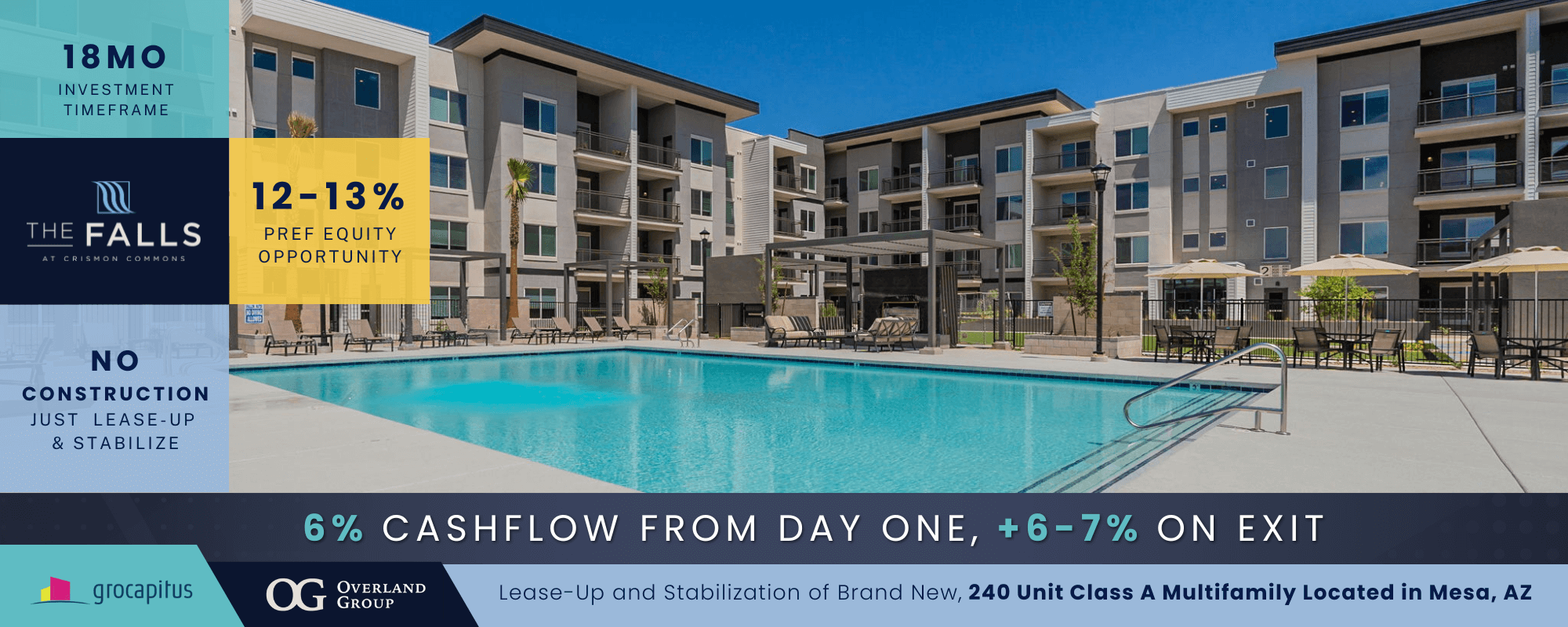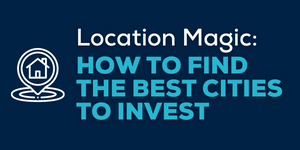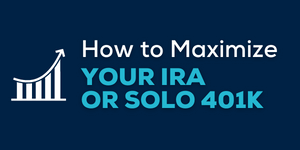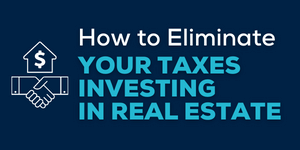We know that the coronavirus has changed the world and created a “new normal,” but how has the pandemic specifically affected real estate investing? In this podcast, multifamily real estate investor, entrepreneur and educator Neal Bawa shares how Covid has impacted real estate investing, how we should respond to this “new economy” and what new opportunities are available for forward-looking investors.
What You Will Learn
- How should real estate investors invest today?
- What are the best and worst asset classes to invest in today?
- Where are the new hot investment markets?
- Why has the Federal Reserve Bank created a new economic strategy and what will be the long-term effect?
- What will happen to real estate prices in the next 3 to 5 years?
- Why do bad times have more opportunities than good times
- How will the coronavirus impact the world over the long term?
About Our Guest
Neal Bawa
Neal brings extremely strong strategic and operational experience to his role as CEO at Grocapitus Investments. Neal sources, negotiates and acquires Commercial properties across the U.S., for 500+ investors. Current portfolio over 2,000 units/beds, projected to be at 3,000 in 12 months. The portfolio includes Multifamily and student housing properties in 9 U.S. states. Neal is a nationally recognized, in demand speaker at Multifamily events, IRA events & meetups across the country. Nearly 4,000 students attend his multifamily seminar series each year and hundreds attend his Magic of Multifamily boot camps. Neal’s nationwide Meetup network (Multifamily University) has thousands of members. Neal leads Grocapitus Investments where he is driving the syndication and acquisition of multifamily properties.
How Do We Invest Now?
- Neal has divided his answer to this question into sections:
- What’s changed?
- What hasn’t changed?
- What cities are the best to invest in in a post-Covid world?
- What asset classes are the best to invest in in a post-Covid world?
What Hasn’t Changed?
- Federal Bankers around the world have all agreed to the strategy to “pretend and extend”
- They are playing by the same gamebook as they have been playing by since the Great Recession in 2008
- Whenever they see weakness in the economy, they cut interest rates
- There are no dogmas anymore
- There are no bottom barriers
- They can cut rates as low as is needed to shore up the economy
- They are continuing this philosophy
- In fact, they have become bolder at it
- They are no longer sticking to their old policy to keep inflation at 2%
- Neal feels the real president of the U.S. is the chairman of the Federal Reserve Bank
- The president of the U.S. no longer has the kind of impact today on real estate investing and on Main Street, in particular, as they used to have 20 or 30 years ago because, back then, we had a federal reserve that was content to let the economy slide into recession.
- In the past, the Federal Reserve Bank saw itself as a force to “cushion the blow” and not to take an “activist role” to prevent any kind of recession from happening
- In their new “activist role,” they pervert the business cycle
- Today, you have to follow more closely what the Federal Reserve is doing, more than the political parties
- He believes that, if the democrats win both the presidency and the senate, then major change is possible – last time this happened, Obamacare came out of it – but this is highly unlikely
- He sees Republicans acting more like Democrats and Democrats acting more like Republicans – the two parties are merging on their views of the economy because they recognize that it’s the fed that’s driving the economy. They agree on:
- Money printing
- Low or negative interest rates
- The result is that yields globally are going down as the fed interest rate goes down
- In 1990, if you bought a treasurer bond, you got 9% – a U.S. treasury bond is a “risk-free investment”
- Percentage yields on real estate were 11% – a 2% risk premium
- It went to a 4% premium and stayed that way until 2005 when it went down to 2%, then the meltdown happened – real estate got very expensive
- By 2012, it had adjusted and the premium went up to 5.5% and real estate was very cheap
- All along, treasure yields were dropping
- Today, treasury bonds yield .07%
- Today, the yield gap between treasury bonds and real estate is 5.8%
- PREDICTION: Neal sees real estate prices going up significantly in the next 3-5 years
- Reasons for this prediction:
- Because the Fed has abandoned its practice of tightening
- They said they would allow inflation to go up by 2% “in the long run”
- This means that interest rates could stay low for the next 5-7 years, and possibly longer
- The U.S. government is running up such huge deficits that if we raise interest rates up to, say, 5-6%, how will we pay back the interest on our massive federal debt? – 100% of what the government makes will go to the payments on debt – nothing left for government, military, social security, etc.
- There is a vested interest in the government wanting to keep interest rates down for an extended time period and allow inflation to run hotter and fix the debt problem – you call always inflate your debt away by having higher inflation
- The world banks are all saying we need to let inflation run hotter
- This significantly favors real estate
- Because the Fed has abandoned its practice of tightening
- Reasons for this prediction:
- Whenever they see weakness in the economy, they cut interest rates
- They are playing by the same gamebook as they have been playing by since the Great Recession in 2008
What Has Changed
- The new coronavirus economy has separated the various real estate asset, classes
- The losing asset classes are:
- Office
- Companies are re-tooling
- Covid taught CEOs all around the world that they could still run their companies remotely
- Office buildings’ HR Departments in San Francisco are publicizing:
- If you move to Denver, you’ll get an 18% cut in salary
- If you move to Los Angeles, you’ll get an 8% cut in salary
- If you go to another cheaper place to live, you’ll get a 20% cut in salary
- And people are still doing it because the quality of life will be better and expenses are less
- Offices are the biggest losers but they are the slowest loser
- It’s going to take 2-4 years for this new Covid economy to become obvious on the office side
- There could be great opportunities for companies that will be able to re-tool office space into medical offices
- Because Covid has forced us to look at our health more, there may be a surge in medical-focused care and businesses
- Smaller suburban office buildings may also be a major opportunity
- Neal refers to it as “Surban” – suburban urban development
- This may be the first 6 months of this trend that may be commonplace in the next 30 years
- Neal refers to it as “Surban” – suburban urban development
- Retail
- If you didn’t have a grocery store anchoring your shopping center or mall, you’re finished
- This is permanent
- It’s been coming for sometime – the retail apocalypse!
- In the last 10 years, retail hasn’t grown – it’s remained the same
- There will be shrinkage
- For the last 10 years, e-commerce rose at 10% a year (while the U.S. economy grew at 2% a year)
- Hotels
- With a vaccine, travel may rebound, which would help hotels
- Unfortunately, the wounds are so deep, it may take 3-4 years for hotels to recover
- The best hotels in America have no money
- We’ll see bankruptcies in some of the most iconic hotels in America
- Hotels today are at 40% occupancy. Break-even is in the 60-70% occupancy
- In the last 5 years, all of the above asset classes were doing very well
- The winning asset classes are:
- Industrial
- Is a very hot class
- Mainly due to a surge in e-commerce
- Currently 10% of the U.S. economy
- Could be 30%
- We realize we can’t be a JIT (just in time) economy
- We realized with the shortage of toilet paper and other critical supplies
- We need lots of space
- Multifamily
- Multifamily collections have been phenomenal
- We survived better than we thought through the pandemic
- Single Tenant Grocery-Anchored Retail
- Prices and demand is going through the roof
- Great opportunities
- Single Family Homes
- 48 out of 50 markets are at all-time highs
- Our homes have been the prime focus of our lives through Covid
- There’s a shortage of lumber at Home Depots across the country
- Converting space to home offices
- Other rehabs
- Industrial
- Office
Hot Markets in a Coronavirus Economy
- He tracks 5 key metrics to evaluate investment markets
- Population growth
- Job growth
- Income growth
- Home price growth
- Crime reduction
- The only metric that matters for the next 12 months is JOB GROWTH
- The cities/states that didn’t shut down are the real winners – they’re thriving
- Arizona
- Utah
- Idaho
- North Carolina
- Texas
- Florida
- They have
- Lowest unemployment
- Strong economy
- Restaurants are open
- The states/cities that are losers
- California
- Los Angeles 20% unemployment
- Boston
- Orlando
- Las Vegas
- Reno
- Atlantic City
- San Francisco
- California
A Prediction
- Over the next 30 years, people will look at Covid for the benefits it brought to the world
- It used to be that 99% of the world’s real estate value was in 1% of the world’s territory, Covid caused the value to spread out
- In the past, the political infrastructure didn’t support it
- The corporate infrastructure didn’t support it
- Since many will be working from home, existing rental space will be configured to accommodate more “home office” space
- 6X6 office nooks will be configured as workspace
- Bad times have more opportunities than good times
- This is the wrong time to freeze
- Great opportunity to buy distressed restaurants
- If 40% are going out of business, then 60% are going to do really well a year from now
- Great opportunity to buy distressed hotels or inject equity into them





